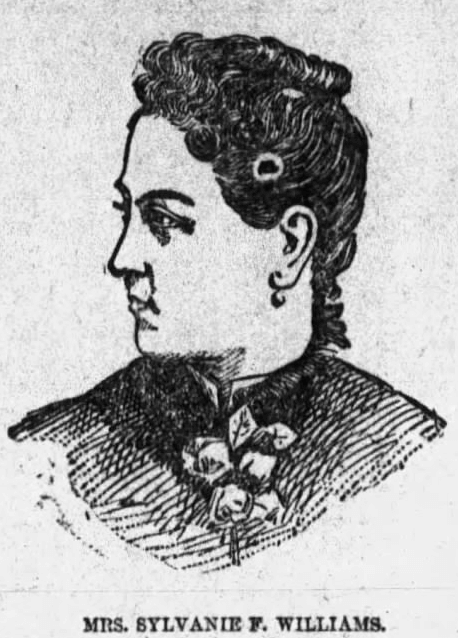EQUAL SUFFRAGE
- Program
- Subject
- Location
- Lat/Long
- Grant Recipient
-
National Votes for Women Trail
-
Event, People
- 2605 Sixth St, New Orleans, LA 70115, USA
- 29.938651052059, -90.093482046814
-
National Collaborative for Women's History Sites
EQUAL SUFFRAGE
Inscription
EQUAL SUFFRAGESYLVANIE F. WILLIAMS, BLACK
SUFFRAGIST & LAFON SCHOOL
PRINCIPAL, HOSTED NATIONAL
SUFFRAGISTS AT LOCAL PHYLLIS
WHEATLEY CLUB MEETING 1903
WILLIAM G. POMEROY FOUNDATION 2021
Sylvanie F. Williams was many things: a suffragist, an educator, a community activist, and an advocate for racial equality. Williams dedicated her life to fighting for a more equal society and improving the lives of African Americans in New Orleans during Reconstruction and the era of Jim Crow laws. After receiving her education from the Peabody Normal School, Williams went on to serve as a principal for both the previously mentioned Peabody School as well as the Thomy Lafon School, the latter of which formerly stood near the site of this marker.
Williams was principal of the Thomy Lafon School from 1896 to 1921. Under her leadership she helped rebuild the school when it was burned down in 1900 during a riot in which African Americans were targeted by roaming mobs, and which claimed the lives of over an estimated twenty individuals and wounding countless others. The school was rebuilt around 1906.
Recognizing the importance of voting rights for African American women, Williams passionately advocated for equal suffrage even as African Americans were largely excluded from the larger national organizations promoting women’s suffrage. In 1894 Williams founded the Phyllis Wheatley Club as a social and political club for African American women. The Club helped create and support a sanitarium and nursing school, as well as a kindergarten, day care and night school, all of which provided support to the African American community of New Orleans.
The Phyllis Wheatley Club and Williams’ support of equal suffrage eventually drew the attention of national organizations. In 1903 a number of national suffragists attended a Club meeting in New Orleans, including Susan B. Anthony and Dorothy Dix. Following the meeting, Williams presented Anthony with a bouquet of golden flowers tied with a yellow bow. (The Woman’s Journal, April 4th 1903.)
Regarding Williams, the article went on to say that: “Mrs. Gilmer, in her brief address, said that no woman in New Orleans was more respected or had more influence than Mrs. Williams.” It’s important to note that this high praise came shortly after Williams was forced to withdraw as a delegate to a meeting for the National Council of Women’s Executive on account of her race and fear that, should she attempt to attend, the organization would select a location other than New Orleans to host its meeting as the Local Counsel refused to participate if a person of color was allowed to attend.
Despite the prejudices Williams endured throughout her career she remained a fierce advocate for equal suffrage and her community throughout her life. She passed away in 1921 at the age of 72 following 51 years as an educator on top of her activism.

